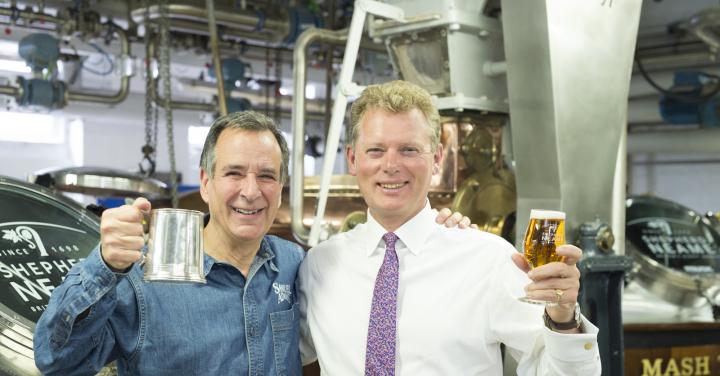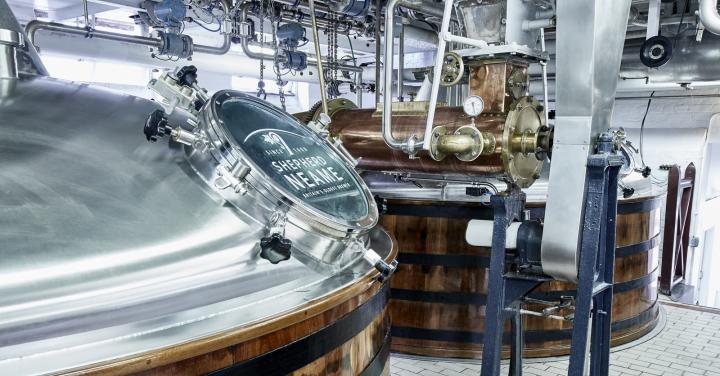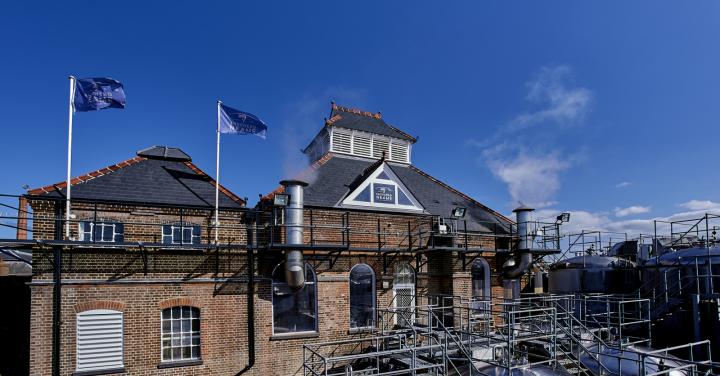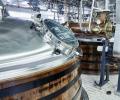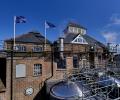Refurbished Brewhouse Unveiled
Shepherd Neame has unveiled the results of a major modernisation project that has transformed its historic brewhouse and upgraded equipment, while retaining its unique character.
The project included the retirement of the brewery’s wooden mash tuns after more than 100 years in service, and the installation of new state of the art stainless steel replacements.
The project also saw the refurbishment of the fabric of the building and the historic streetscape that runs through the centre of the brewery, at a cost of circa £750,000.
The results were officially unveiled by craft beer pioneer Jim Koch, founder of the Boston Beer Company, for whom Shepherd Neame brews Samuel Adams Boston Lager in the UK. He said:
“It’s an honour to reopen the Shepherd Neame brewhouse, where so many classic beers have been brewed and where the brewers continue to innovate while upholding the extraordinary tradition of craftsmanship and quality this brewery embodies.”
Shepherd Neame chief executive Jonathan Neame said:
“I’m enormously grateful to Jim for joining us today and to the whole team who’ve contributed to modernising the brewhouse.
“This really is the beating heart of Shepherd Neame and its refurbishment ensures not only the preservation of our heritage, but provides a 21st century brewing operation that reinforces our commitment to quality and ensures we will keep producing great beer for years to come.”
The project took place over 22 weeks, carefully managed so as not to interrupt brewing, and was conducted in close consultation with Swale Council’s Conservation Team and the Shepherd Neame archivist John Owen.
The new mash tuns were installed at a cost of around £500,000, by leading brewing engineers Musk. To preserve the historic character of the brewhouse, the teak from the former mash tuns was reconditioned by local shipwright Simon Grillet and used to clad the replacement tuns. He said:
“Each piece of wood had to be reshaped to fit around the new mash tuns. It was a very peculiar puzzle to solve, and initially caused a few sleepless nights, but they are 100-year-old vessels made from fabulous Burmese teak, prized for its durability and beauty, so it was a very worthwhile project.”
